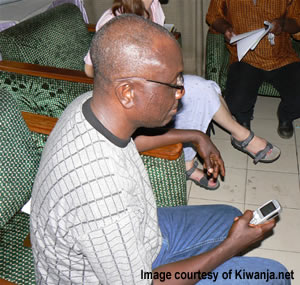
In June 2005, Mobile Africa published an article in which Mr. Tayo Ajakaye raised issues (and some very valid ones too) about the quality of value added services being provided by GSM network operators (see: Value Added Services: Who Uses Them?
I followed that article with a rejoinder, RE: Value Added Services: Who Uses Them?, in which I faulted Mr. Ajakaiye’s argument, though I agreed with him that quality of service needed (and gasp – still needs) improvement.
Who uses value added services? Let’s look at two popular ones: Mobile Internet and SMS.
Mobile Internet
Let’s take WAP (mobile internet): Opera’s State of the Mobile Web report for 2008 says that Nigeria was the 2nd fastest growing mobile internet community in the period under review (with 1854% growth), and is currently globally number 12 on the mobile internet usage scale.
An incredibly large number of Nigerians must be using value added services. As far back as 2006, the BBC had reported that in July of that year, 61% of its international traffic from mobile devices (a whopping 13.2 million page views in one month alone) was from Nigeria.
SMS
Let’s not go there. The SMS market is so rich today that there’s no point flogging the statistics. TV reality shows run interactive SMS campaigns, businesses and non-profit organisations use SMS notifications to reach their target audiences, and there are already interactive SMS applications deployed for instance in banking, financial, and web hosting services.
An incredibly huge amount of Nigerians have been using value added services for years.
Are these services perfect yet? Dream on. It is a long road ahead, but warts and all, value added services by GSM (and CDMA) operators have made a huge difference in the Nigeria before GSM and Nigeria after GSM.
Mobile value added services are here to stay.





Mobile web and SMS have become so popular that I am not sure they should be tagged “value added services” anymore. A cellular network that does not offer mobile web is only half-a-network and not exploiting its full potential.
Dave, its along the same line of argument that most of what we call mobile phones today have evolved so much that they should not be tagged as “phones” any longer. As true as that is, and as much as I agreee with the notion for a change in nomenclature, unfortunately, the industry still classifies them as phones.
Same way the industry still classifies mobile internet and SMS as value added services. But – back to the point – yes, your comment does buttresses how prevalent the use of these services have become.
Honestly, and to push the facts further, I wonder why these network operators are still called telephone companies. Many of them are more of ISPs than telephone companies, you know 🙂
Cheers, mate!
To call them ISP is to imply that they offer good Internet connectivity service. Do you remember our conversation in your office? 🙄 Good.
Let’s leave them to do what they do best, for now and that is to offer voice telephony. When their Internet offering gets better, then we can consider tagging them “communications solutions provider”.
Do not forget that many of them have universal licenses that allow them to dabble into anything to do with communications.
Hello,
In fact, I think you need to review the question of not just the quality of service but the presence of the service.
I have had too many instances from friends and relations in Nigeria who have send SMS texts from Nigeria and they have all ended up in the ether somewhere, but someone has charged for the service.
I do not know if this is netowrk specific or a general issue, it might well be the internation SMS component if local services work but for at least half a year I can say I have not been able to receive SMS texts from Nigeria and there doesn’t seem to be a way of seeking redress for a service that does not deliver.
I hope there can be some discovery process as to why this is the case.
Regards,
Akin Akintayo
😀 True talk!